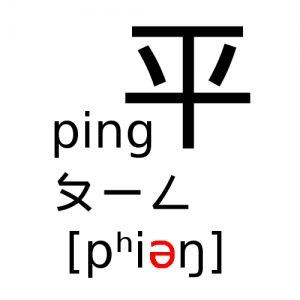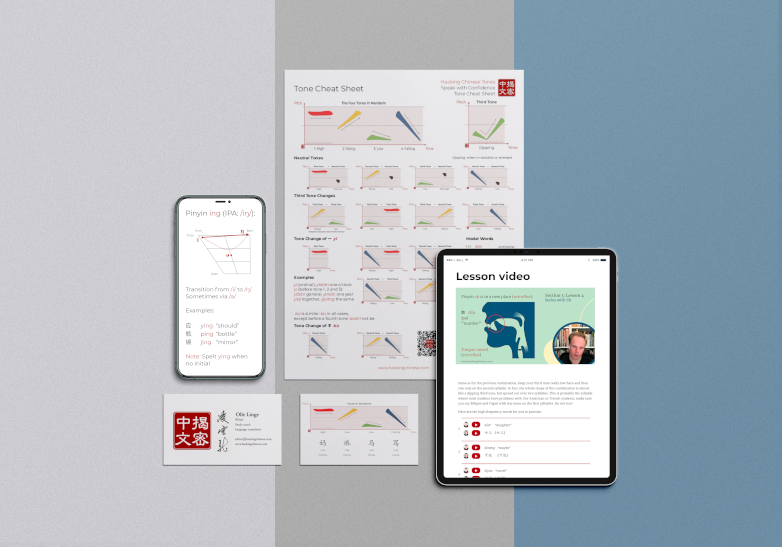 Pronunciation is often overlooked in Chinese language education. The tones, initials and finals are introduced in the first few weeks but are then mostly forgotten about.
Pronunciation is often overlooked in Chinese language education. The tones, initials and finals are introduced in the first few weeks but are then mostly forgotten about.
Some teachers give students opportunities to work on their pronunciation and offer helpful feedback, but this is the exception rather than the norm.
This is a pity because pronunciation is perhaps more important than you realise. Studying vocabulary and grammar is no good if you can’t pronounce the phrases in a way native speakers can understand.
Naturally, if you’re only going to say things expected of you, most people can guess what you want to say based on context. Still, pronunciation becomes essential as soon as you enter into more open-ended exchanges.
Focusing on pronunciation for three weeks (the duration of this challenge) won’t solve all your pronunciation issues, but it is enough time to progress in a clearly defined area.
Improve your pronunciation with my pronunciation course
If you enrolled in my pronunciation course in September, this is the perfect opportunity to put some extra time and energy into your pronunciation. If you didn’t enrol, the course will open again for registration later this autumn, most likely in November. You can read more about the course here and sign up for the waiting list if you are interested.
Hacking Chinese Pronunciation: Speaking with Confidence
Active participants have a chance to win feedback on their pronunciation
Like last year, I’ll give free feedback on a few people who participate actively and contribute to the challenge. This is not the comprehensive check that’s available as an add-on to the pronunciation course, but I will help you identify some key areas to work on, regardless if you just started learning or if you’ve been studying for a decade.
Hacking Chinese pronunciation challenge, October 10th to 31st
Tune in to the Hacking Chinese Podcast to learn more about Hacking Chinese Challenges:
Available on Apple Podcasts, Google Podcast, Overcast, Spotify and many other platforms!
This is how you sign up and join the challenge:
- Sign up (using your e-mail, Facebook or Twitter)
- View current and upcoming challenges on the front page
- Find the current challenge and click “Enroll!”
- Set a reasonable goal (see below)
- Start improving your pronunciation!
- Report your progress on your computer or mobile device
- Check the graph to see if you’re on track to reaching your goal
- Check the leaderboard to see how you compare to others (if you want)
- Share progress, tips and resources with fellow students
Please note: The challenge starts on the 10th, so even if you join now, you won’t be able to report progress until then. I post this article today, so you have a few days to prepare!
Setting a reasonable goal
Three weeks is not a long time to make substantial gains in pronunciation unless you’re a beginner. Since time is the unit being measured in the challenge, decide how much you can spend before the end of the month. A few sessions of 20-40 minutes per week is reasonable for a serious student who doesn’t study full-time.
Choose one problem to focus on! It should be as specific as possible. Simply “improving my pronunciation” is not specific enough. It is improbable that you have no issues, but if you think that’s the case, your goal for the challenge should be to figure out what some of your problems are and start working on one of them.
Feel free to share your goal in the comments; if you do, don’t forget to post about the result at the end of the month! Possible goals include fixing a certain tone problem, figuring out what’s going on with a sound you’ve had trouble with and improving your prosody on the sentence level.
How to improve your pronunciation
I have written a lot about pronunciation already, so I’ll point you in the right direction. If you want to get started and don’t have time to browse through articles, then just find a nice audio clip with naturally sounding Mandarin and try to produce your own exact copy of it, including everything. Become the native speaker. Ideally, get feedback from someone when you think you have accomplished this, then work on ironing out any issues.
If you want to read more, there are a series of articles about basic pronunciation and how to approach the topic:
How to learn Chinese pronunciation as a beginner
The Hacking Chinese guide to Mandarin tones
How learning some basic theory can improve your pronunciation
How learning some basic theory can improve your Mandarin pronunciation
Learning to pronounce Mandarin with Pinyin, Zhuyin and IPA: Part 1
Learning to pronounce Mandarin with Pinyin, Zhuyin and IPA: Part 1
Articles about evaluating and finding problems with pronunciation
Second, we have a few articles about evaluating your pronunciation and becoming aware of the problems you very likely have:
How to find out how good your Chinese pronunciation really is
How to find out how good your Chinese pronunciation really is
A guide to Pinyin traps and pitfalls: Learning Mandarin pronunciation
A guide to Pinyin traps and pitfalls: Learning Mandarin pronunciation
Standard pronunciation in Chinese and why you want it
Other useful articles about improving pronunciation
Third, there are a few articles that don’t really fit in either of the categories above but are still relevant:
Focusing on tone pairs to improve your Mandarin pronunciation
Focusing on tone pairs to improve your Mandarin pronunciation
Improving pronunciation beyond the basics
About fossilisation and improving your Chinese pronunciation
About fossilisation and improving your Chinese pronunciation
Resources for learning and improving pronunciation
The best place to go for this is Hacking Chinese Resources, where there are currently 24 resources listed with the tag “pronunciation”. As it happens, I have also written an article about these and some other resources, so you can also check that one out: 24 great resources for improving your Mandarin pronunciation.
24 great resources for improving your Mandarin pronunciation
Preliminary challenge schedule for 2023
Here is a preliminary list of challenges for 2023, but I’m always open to ideas. Based on user participation, surveys, as well as my own opinion, reading and listening challenges are particularly helpful for a large number of people, followed by those focusing on vocabulary. These will recur more often throughout the year, with other, more specific challenges spread out in between.
Challenges last for roughly three weeks. They always start on the 10th of each month and last until the end of that month. Three weeks is enough to get a significant amount of studying done, but not so long that people lose focus. This also leaves ten days of breathing space between challenges.
- January: Listening
- February: Writing
- March: Reading
- April: Speaking
- May: Listening
- June: Vocabulary
- July: Reading
- August: Translation
- September: Listening
- October: Pronunciation
- November: Reading
- December: Vocabulary

Tips and tricks for how to learn Chinese directly in your inbox
I've been learning and teaching Chinese for more than a decade. My goal is to help you find a way of learning that works for you. Sign up to my newsletter for a 7-day crash course in how to learn, as well as weekly ideas for how to improve your learning!


8 comments
I will use the anki deck “Listening Deck for Chinese 4th Year” (8000+ sentences) to practise pronunciation and listening until the end of July
I’ll be reading aloud as I am going through 笑傲江湖, with a goal to improve my rhythm, character/tone recognition.
I’m going to wotk on my weakest spots, specifically my “qi” and “yu” sounds as well as the fourth tone and it’s combination with other tones.
I’m still at a pretty basic level, so my goal is to work on more natural-sounding pronunciation by revisiting the audio from my workbooks and other sources, as well as shadowing dialogue made for learners and native-speaker dialogue from Chinese dramas & talk shows (I have some specific clips picked out for their vocabulary).
These are always worthy goals and worthwhile activities, almost regardless of level! You can essentially not go wrong with more mimicking, except maybe if you mimic something most native speakers would agree is weird or just plain wrong, but the likelihood of that is very low. 🙂 Good luck!
I will be reading every sentence from my daily Anki studies out loud. I should always be doing this but I am too lazy.
Great! Also good that you commented here so I can update the article to be relevant for 2023, thanks! 🙂
I will be listening to & repeating Slow and Clear Chinese on YouTube every day for 20 minutes. Every segment has a slow-speed dialogue then a regular-speed dialogue. It is accompanied by 汉子, Pinyin & English, which is just right for me.